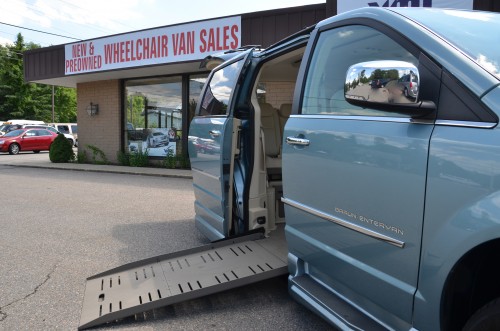If you’re trying to sell your wheelchair accessible vehicle by yourself, you should know the average mobility vehicle could take a few months to sell. The number of people with limited mobility in one local area who are in the market to purchase can be very small. Add to that the specialized equipment on your van that a potential buyer may not want, and the weeks roll by (and you’re still making payments on the old van).
The fastest deal is at a local mobility dealership. We buy and sell new and used vans throughout New England, take trade-ins, buy vehicle outright and/or can put them on consignment—whether it’s a non-converted vehicle or a converted van.
In order to get the best offer (or trade-in value), you should make sure its in “buying condition”.
Look at the vehicle with fresh eyes—like a buyer would. Ask yourself, “Would I buy this vehicle?”
- If something needs repairing, fix it. A small investment can add hundreds to the value.
- Wash it, wax it or take it to a detailer for a shine, inside and out. Maybe you only need to wash it and perhaps buy new floor mats.
- Write down vehicle information such as year, make, model, interior and exterior colors and mileage; VIN number; side or rear entry, configuration of the interior of the van; standard features; removable features and any other adaptive extras.
- Double check safety features: Are the tie-downs still sturdy and clean? Does the lift or ramp still operate smoothly?
- Consider replacing the tires if they are bald.
- Take out all personal items you may want to keep.
- Find the registration, warranty, owner’s manual, equipment manuals and repair receipts.
- All controls should be clearly labeled—and work!
Now you’re ready to sell or trade-in for a newer model.

